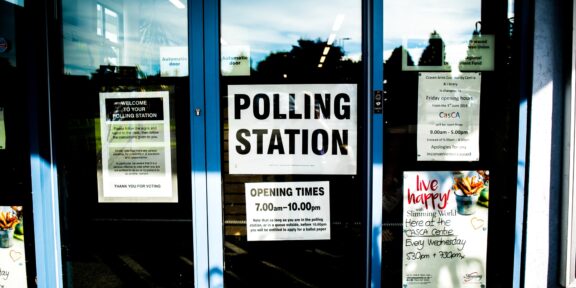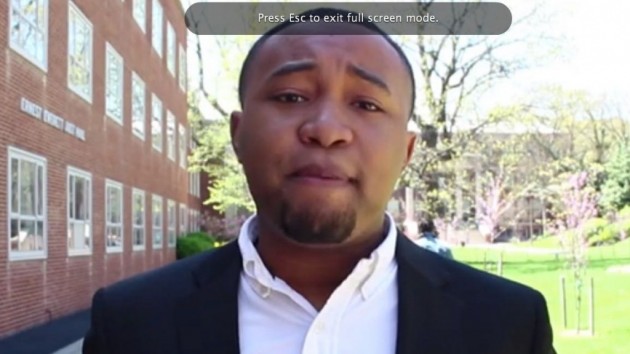Visions of 2000 Race Creates Apathy Among Some Voters
Though the 2008 presidential election is nearly a year away, talk of whom to vote for and why is a particularly controversial and sensitive subject in the black community, especially among young adults.
Since 1971 when the legal voting age was officially lowered from 21 to 18, young adults have been urged to make their voices heard by exercising their power to be part of the political decision-making process.
Although census reports have shown increases in voter turnout among 18 to 24-year-olds in the past 30 years, many young voters question the relevance of their individual votes in the larger political scheme. They recall the controversy surrounding the presidential election in 2000 and wonder what may come in the future.
“Many of us are quite disgusted after seeing the goings on of the 2000 elections,” said Ava Wilson, a senior majoring in Afro-American Studies at Howard University. “Thousands of votes were unaccounted for in Florida and who knows where else, but Bush still won the presidency. That sends a clear message to us that our votes don’t matter and that the Electoral College can do whatever it wants at the end of the day.”
The presidential race in November 2000 is recalled as a close and divisive one. Critics note that George W. Bush was named president although his opponent, former Vice President Al Gore, won the popular vote, according to the official count by the Office of the Clerk. Voting irregularities were blamed on thousands of miscounted ballots, late absentee ballots, computer malfunctions and voters misunderstanding how to use new voting systems.
Some potential voters criticize the voting process as a result of such events, and question the commitment to the black community where reform in everything from education to housing availability have been issues for decades.
“The candidates’ main focus is on the concerns of the mass population,” said Ayana Thomas, a Northwest Washington resident and caregiver. Thomas, 23, voted in the last presidential election, but does not plan on casting ballots in 2008.
“The things we want to get accomplished in our marginal communities is always an afterthought,” Thomas said.
“We’ve always needed to improve out school system,” she continued. “We’ve had problems with drug infiltration for decades and these issues are never properly addressed. I don’t see any difference made from past to present so I’m uninspired to participate.”
Despite criticism of the voting process and the relevance of the candidates to the black community, some still feel compelled to participate in the voting process.
“Think about what it took for blacks to get the vote,” said Paul McGhee, a political science major at Howard University. “Our ancestors struggled to give us this privilege, and it would be totally disrespectful not to vote after that. If you truly have a problem with voting then at least get involved in interest groups. Don’t just complain and do nothing.”
Census studies show that the more education citizens have, the more likely they are to be politically active.
“Those who are apathetic about voting are typically not engaged in what’s going on and have a narrow and limited understanding of how the process works,” said Anyu Ndumbe, assistant editor of Mediterranean Quarterly, a journal on international politics and policy.
“Think about voting and the implications it may have and not voting and the implications it can have,” Ndumbe suggested. “It won’t hurt anything at the very least.”


